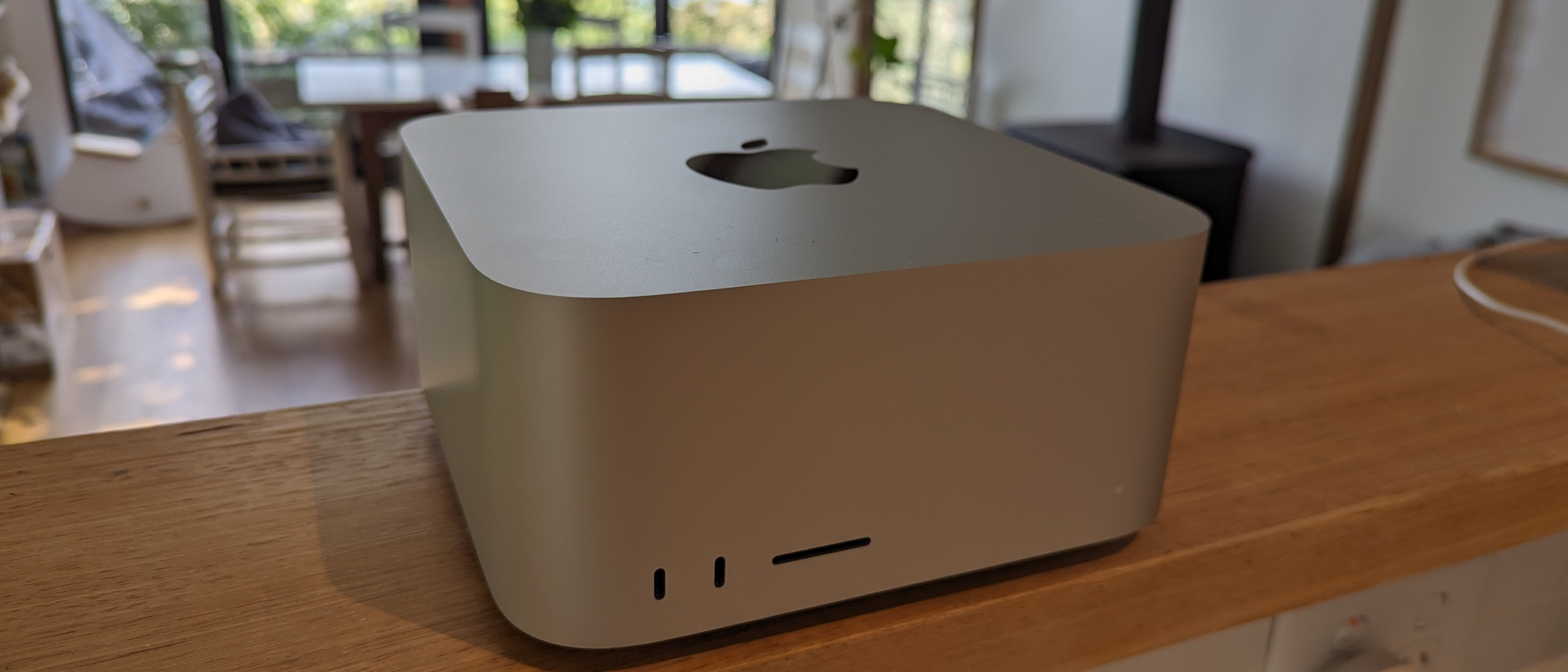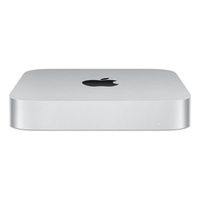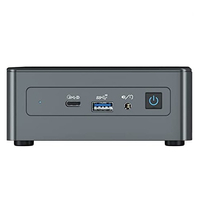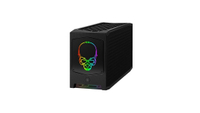TechRadar Verdict
The Mac Studio M2 Max and M2 Ultra offer meaningful performance improvements over the previous generations and line up with some powerful enthusiast workstations without being excessively expensive.
Pros
- +
Compact sleek package
- +
Solid workstation performance
- +
Reasonably priced
Cons
- -
Can get PCs with more powerful GPUs
Why you can trust TechRadar
Apple Mac Studio (M2 Ultra): Two-minute review
The original Mac Studio, with the first iteration of Apple processors, was an impressive development in Apple’s desktop lineup showing the true potential of Arm chips in a permanently powered system by out performing almost everything else available. In 2023 Apple updated this creative professional desktop with the M2 processor, an upgrade that the company believes can be powerful enough to drive its most powerful desktop device the Mac Pro as well as the new line up of Mac Studio devices.
The new M2 processors boast improved performance, larger memory capacities and improved memory bandwidth. There are also upgrades to the Neural Engine that translates non-native MacOS programs into RISC language and takes on the workload of AI processing tasks.
The 2023 Mac Studio is a desktop PC that continues to sit above the Mac Mini, without costing as much as the $6,999 / £7,199 / AU$11,999 starting price for the Mac Pro. The M2 Max variant of the Mac studio starts at a very approachable $1,999 / £2,099 / AU$3,299, but what is perhaps even more interesting is that the higher performing M2 Ultra configuration that can be purchased from $6,599 offers the same processor, Unified Memory allocation and SSD as the notably more expensive entry Mac Pro configuration.
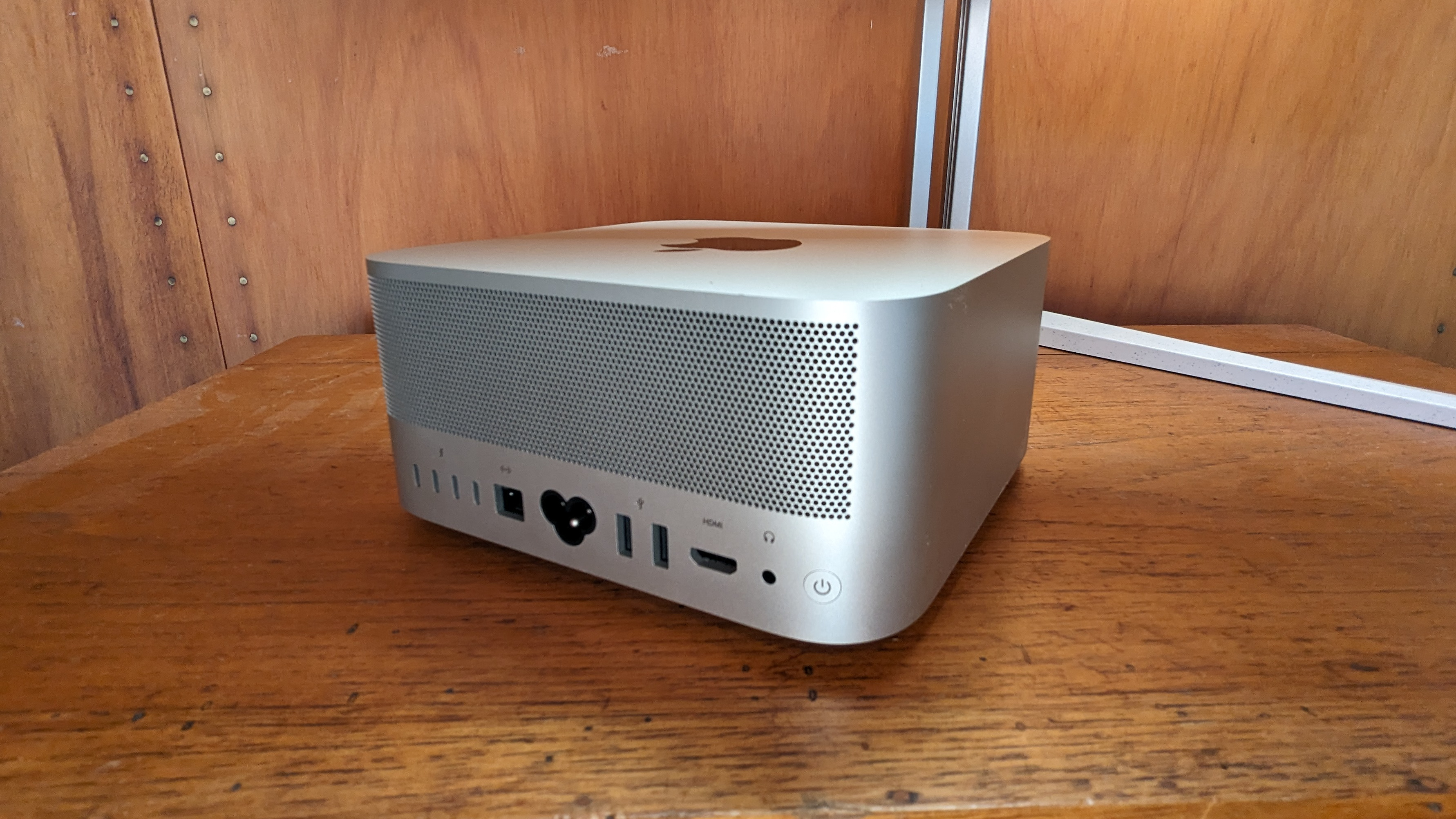
Intel and AMD have worked hard to ensure they made the latest generation of processors to outperform Apple’s M2 offerings, so the Mac Studio doesn’t offer the same uniquely high performance as the last generation, but both M2 configurations do still improve over the M1 Mac Studio devices by up to 20% in CPU benchmarks and over 40% improvements in gaming framerates. Some applications are even further optimised allowing improvements that are even bigger than these baseline processor improvements.
If your workflow demands additional memory, increased processing power or frequently includes graphically intensive applications then it’s likely that you’ll benefit from the additional power of a Mac Studio over the top spec Mac Mini. When you consider the power on offer at the price you get it, the Mac Studio is an exceptionally good value PC. The sleek desktop doesn’t take up much space, it’s quiet and it’ll even meaningfully reduce power costs for intensive work users. With a good overall port selection and the latest wireless connectivity options there’s really nothing missing from the M2 Max and M2 Ultra Mac Studio configurations.
Apple Mac Studio (M2 Ultra): Price, availability and specs
The entry Mac Studio uses a similar M2 Max chip as the one found on the top spec MacBook Pro. They’re not identical since the entry Mac Studio SoC has a GPU with fewer cores, but you can upgrade it to match the MacBook Pro offering for an extra $200 / £200 / AU$300.
This entry level Mac Studio is paired with 32GB of memory and a 512GB SSD for a pretty powerful configuration considering the overall $1,999 / £2,099 / AU$3,299 price. You can easily opt for up to 64GB of RAM and up to 8TB of storage (if you feel like doubling the cost of the unit), but the 1TB storage upgrade and 64GB memory upgrade aren’t excessively expensive for those that need a little more than the base configuration.
For anyone wanting to really push their device into workstation territory there’s the option for the M2 Ultra configuration that starts at $3,999 / £4,199 / AU$6,599. This model starts with 64GB of Unified Memory and a 1TB SSD, but can contain up to 192GB of total memory and an 8TB SSD. Pricing here is really about what you need to get your work done, but it’s not unreasonable considering it’s straddling the enthusiast gaming and custom workstation PC space and it’s great against the starting Mac Pro configuration.
We’re not exactly sure why the devices seem to have a relatively high price in the UK although it’s likely due to different local product taxes.
| Apple Mac mini (M2 Pro) | Apple Mac Studio (M2 Max) | Apple Mac Studio (M2 Ultra) | Apple Mac Pro (M2 Ultra) | |
|---|---|---|---|---|
| Price (starting): | $1,299 / £1,399 / AU$1,999 | $1,999 / £2,099 / AU$3,299 | $3,999 / £4,199 / AU$6,599 | $6,999 / £7,199 / AU$11,999 |
| CPU: | Apple M2 Pro (10-core) | Apple M2 Max (12-core) | Apple M2 Ultra (24-core) | Apple M2 Ultra (24-core) |
| Graphics: | Integrated 16-core GPU | Integrated 30-core GPU | Integrated 60-core GPU | Integrated 60-core GPU |
| RAM: | 16GB unified memory | 32GB unified memory | 64GB unified memory | 64GB unified memory |
| Storage: | 512GB SSD | 512GB SSD | 1TB SSD | 1TB SSD |
| Ports: | 4x Thunderbolt 4 (USB-C), 2x USB-A, Gigabit Ethernet, HDMI, 3.5mm headphone jack. 10/100/1000BASE-T Gigabit Ethernet | 4x Thunderbolt 4, 2x USB Type C, HDMI, SDXC card slot, 3.5mm headphone jack, 10Gb Ethernet | 6x Thunderbolt 4, HDMI, SDXC card slot, 3.5mm headphone jack, 10Gb Ethernet | 8x Thunderbolt 4, 3x USB Type-A, 2x HDMI, 3.5mm headphone jack, 2x 10Gb Ethernet |
| Wireless: | Wi-Fi 6e (802.11ax), Bluetooth 5.3 | Wi-Fi 6e (802.11ax), Bluetooth 5.3 | Wi-Fi 6e (802.11ax), Bluetooth 5.3 | Wi-Fi 6e (802.11ax), Bluetooth 5.3 |
| Weight: | 2.8 lbs (1.28kg) | 5.9 lbs (2.7kg) | 7.9 lbs (3.6kg) | 37.2lbs (16.86kg) |
| Dimensions: | 1.41 x 7.75 x 7.75-inches (3.58 x 19.70 x 19.70 cm) | 7.7 x 7.7 x 9.5 inches (19.7 x 19.7 x 9.5cm) | 12.31 x 8.71 x 0.61 inches (313 x 221 x 16mm) | 20.8 x 17.7 x 8.58 inches (52.9 x 45 x 21.8cm) |
- Price and specs: 4.5/5
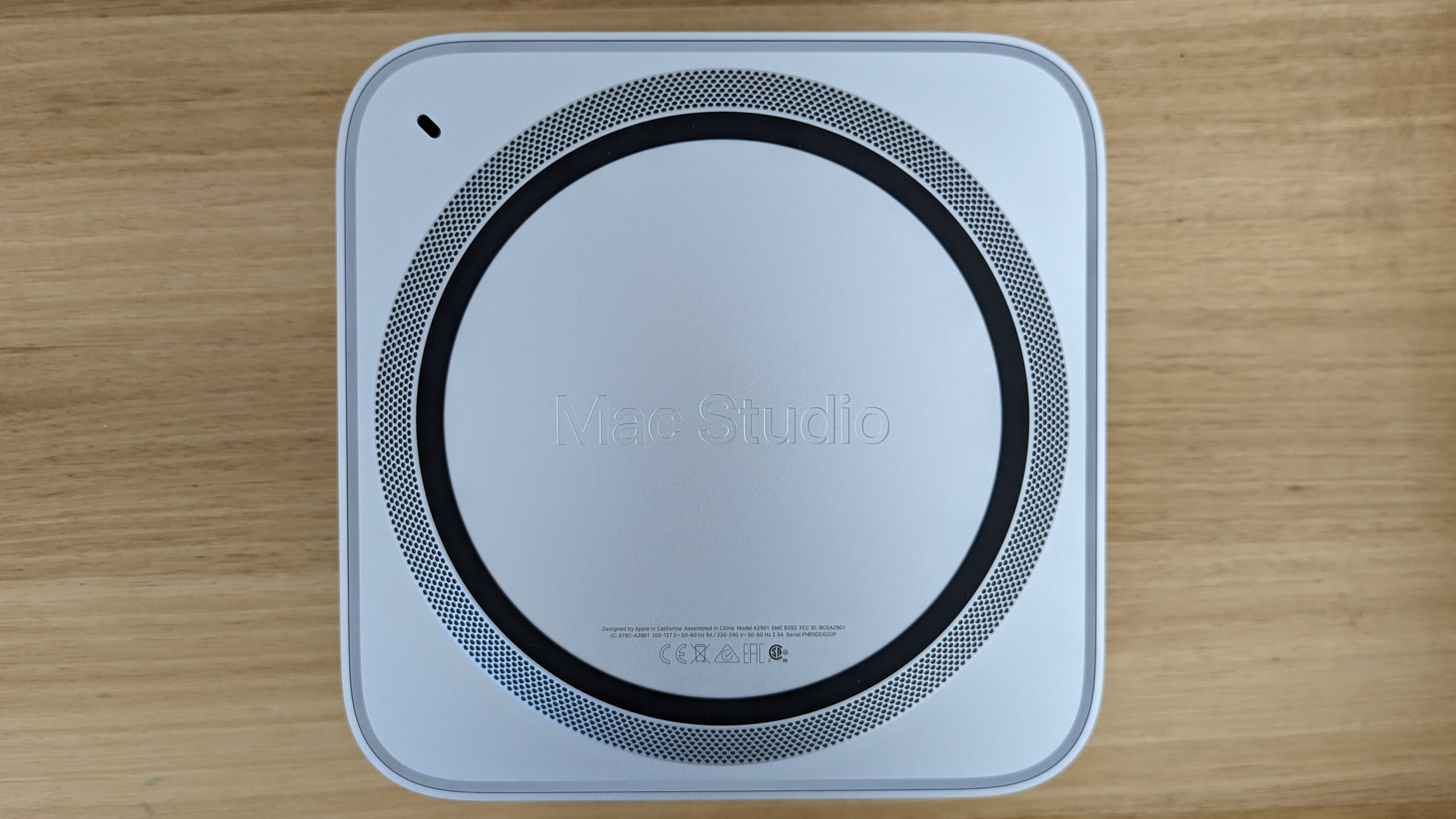
Apple Mac Studio (M2 Ultra): Design
The 2023 Mac Studio uses the same extruded aluminum chassis as its predecessor, so it still looks like a pair of Mac Mini’s stacked on top of one another. Funnily enough, the M2 Ultra chips use the UltraFusion technology seen in the original Mac Studio (M1 Ultra) to sandwich two M2 Max processors together without a significant loss of performance from each chip — So it really is a MacMini sandwich.
You can get somewhat comparable sizes of compact desktop PCs this year if you look really hard. Something like an Intel NUC 13 Extreme Raptor Canyon, for example, with discrete graphics and plenty of RAM will equate to a PC with comparable performance for roughly the same price as an entry Mac Studio.
What is still different is that the footprint sits at just under 20cm squared with a height of 9.5cm, which is an impressively compact 3.8 litre volume for something this powerful. To put that in perspective the Intel NUC 13 Extreme Raptor Canyon, the most compact off-the-shelf PC available, is 3.5 times larger than the Mac Studio overall. The Mac Studio’s lower power draw against x86 based PCs means heat is more manageable, so the fans are quieter than you’d expect for something so compact.
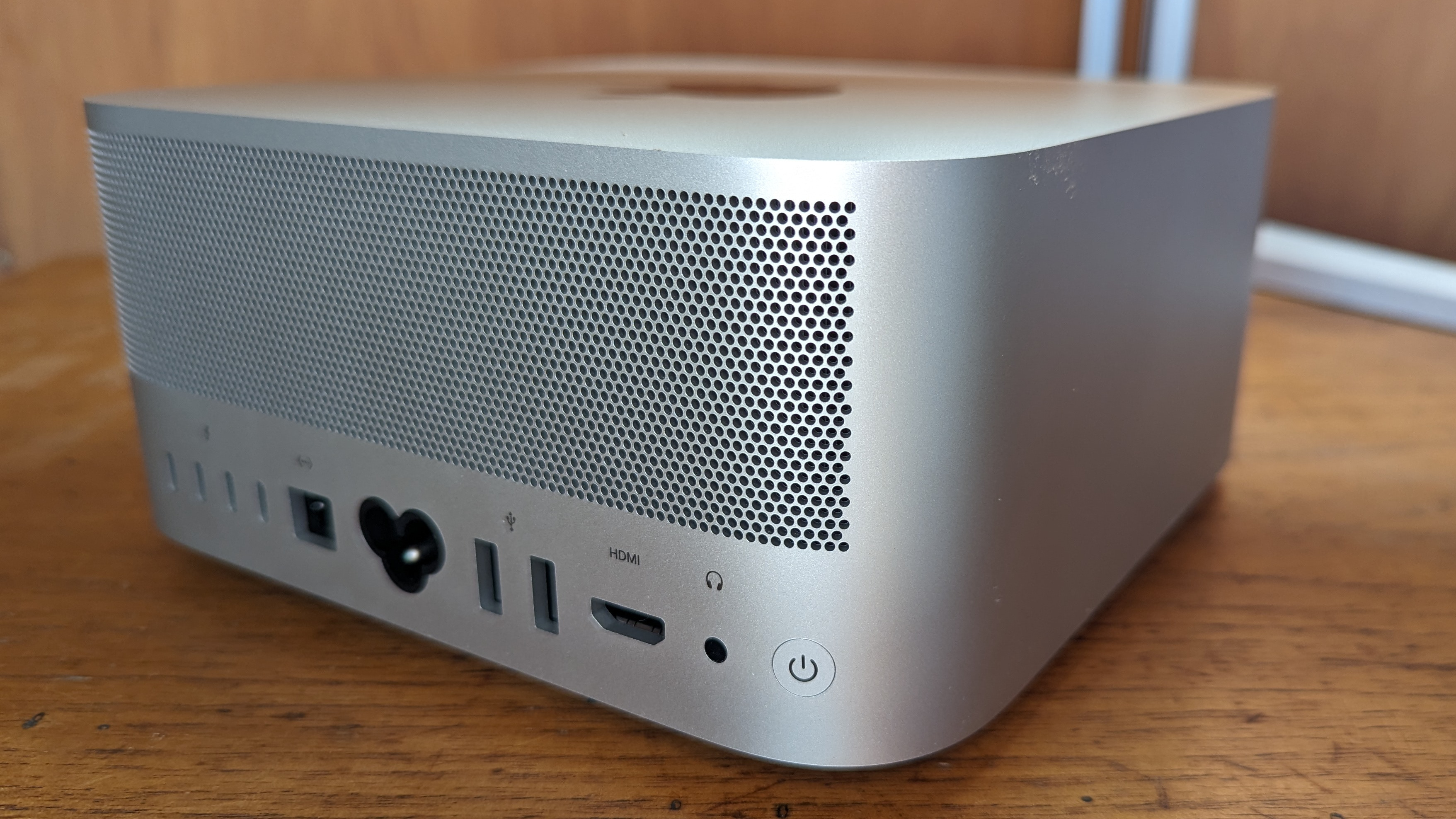
The Mac Studio has a higher bandwidth HDMI for 8K or 240Hz displays and can connect up to six Pro Display XDR screens this time around. It’s also got updated Wi-Fi 6E and Bluetooth 5.3 compatibility for faster connectivity compared to previous generations. The SSD has been updated to the latest generation PCIe connections, so you’ll get 7,000 and 5,759 MB/s read and write speeds respectively.
There’s nothing we can fault in the connectivity options since if you’re working with Mac you’re probably going to want to connect everything with Thunderbolt/ USB-C ports anyway. If not, you’ve got an Ethernet, SD Card reader, HDMI and two USB Type-A sockets to interface with non-Apple devices. The device also comes with a built-in speaker for when you don’t have speakers connected.
- Design: 5/5
Apple Mac Studio (M2 Ultra): Performance
Here’s how the Apple Mac Studio (M2 Ultra) performed in our suite of benchmark tests:
Cinebench CPU: Single-Core: 1,733; Multi-core: 28,550
Geekbench 5 Single-Core: 2,058; Multi-Core: 28,833
Handbreak (1080p, Fast): 100fps
Blender monster: 1,751
Blender junkshop: 930
Blender classroom: 798
The Mac Studio we were sent to test came with an M2 Ultra with 24 CPU cores and 76 GPU cores, 128GB of Unified Memory, and a 4TB SSD, a configuration that retails for $10,799. This is, unsurprisingly, a seriously powerful device capable of outpacing an Intel Core i9-13900K CPU by up to 25% on Geekbench 5, but it also underperforms against the same chip by up to 20% on other benchmarks like Cinebench R23. The CPU performance here is more in line with offerings from Intel and AMD offerings in the enthusiast gaming space, so it’s not quite the standout performance we saw from the M1 Ultra when it launched. But otherwise, if you're a creator looking for the best laptop for video editing or similar, this machine offers more than enough power.
The Mac Studio we tested doubled the core count against a MacBook Pro 16 (M2 Max 38-core GPU) that we had on file, but this translated to a graphical performance bump of just 58% on synthetic benchmarks, with the two offering equivalent framerates in some gaming applications.
There was a noticeable performance jump from last year’s 64-core Apple Mac Studio (M1 Ultra), offering 40% better scores on synthetic benchmarks and up to 80% better gaming performance according to our testing, however, and there are a number of creative workflows that offer meaningful GPU performance increases.
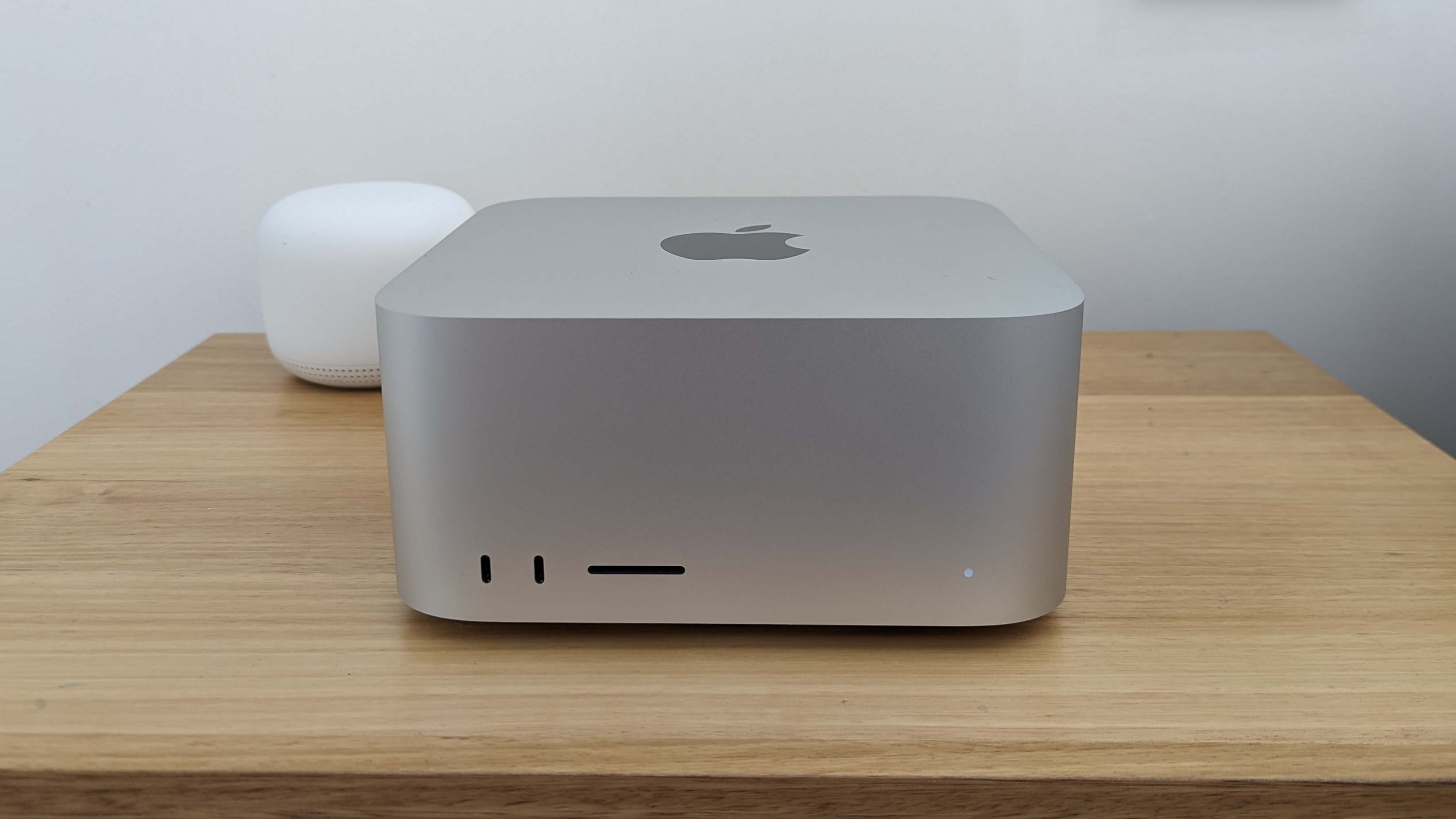
When comparing graphical performance to a PC, the 76-core GPU on the test Mac Studio is roughly equivalent to a Nvidia GeForce RTX 4070 (notebook), at least in terms of synthetic benchmark performance. If you do use it for gaming you should expect performance to be significantly lower since we were only able to get around 64-90 frames per second on titles like Sid Meier's: Civilization VI and Total War Saga: Troy using Ultra 1080p settings, respectively. This means current, graphically intensive games are unlikely to be particularly well optimised.
Fortunately Apple’s Unified Memory architecture allows memory to be accessed directly by the GPU, which will be a massive bonus for some creative workflows. The Apple Mac Studio using the most powerful M2 Ultra also has a Thermal Design Power (TDP) of 90W, 35W lower than the base power consumption of the desktop Intel Core i9-13900K. Once you add the power consumption of a discrete GPU, the Apple offering is going to consume two or even three times less power than a PC that performs similarly well.
- Performance: 4.5/5
Should you buy the Apple Mac Studio (M2 Ultra)?
| Attributes | Notes | Rating |
|---|---|---|
| Price | The Mac Studio is much more expensive than the Mac Mini, but at the upper end you can get a high spec unit for far less than a Mac Pro. | 4.5/5 |
| Design | Compact, quiet, subtle. Has an abundance of ports and wireless connections. | 5/5 |
| Performance | Excellent workstation performance that is only beaten graphically by much larger PCs. | 4.5/5 |
Buy it if...
You do a lot of video, music or 3D modelling work
If you work a lot with applications like Premiere Pro and DaVinci Resolve then this is a great workstation to use.
Desk space is important
The Apple Mac Studio is one of the most compact workstations money can buy delivering a lot of power per pound.
You’re a creative power user
Anyone who appreciates being able to load entire projects into memory will love the Unified Memory capabilities on M2.
Don't buy it if...
You Could get away with a Mac Mini
Many of us just don’t have any need for the power on offer in the Mac Studio. So you could save yourself thousands by opting for a more powerful Mac Mini than going all in on a Studio.
You use PC software
For anyone that is used to working on PC software the jump will include a learning curve that may not be worthwhile and you’ll find the lack of upgradability challenging down the track.
You want to be able to play games
While Apple’s platform is getting better at adding game compatibility, it’s still a long way off what you can get on a PC and the integrated GPU isn’t optimised for games like discrete GPUs are on Windows.
Apple Mac Studio (M2 Ultra) review: Also consider
| Mac mini M2 256GB | Geekom Mini IT11 | Intel NUC 11 Extreme | |
|---|---|---|---|
| Price: | $599 / £649 / AU$999 | $589 / £539 / AU$989 | $1,350 / £949 / AU$1,999 |
| CPU: | Apple M2 (8-core) | Intel Core i7-1195G7 (4-core) | Intel Core i9-11900KB (8-core) |
| Graphics: | Integrated 10-core GPU | Intel Iris Xe Graphics | Asus RTX 3060 12GB Mini |
| RAM: | 8GB unified memory | 16GB DDR4 | 16GB DDR4 |
| Storage: | 256GB SSD | 512GB SSD | 500GB Sabrent Rocket 4.0 SSD |
| Ports: | 2x Thunderbolt 4 (USB-C), 2x USB-A, Gigabit Ethernet, HDMI, 3.5mm headphone jack, 10/100/1000BASE-T Gigabit Ethernet | 2x USB 3.2 Gen 2 Type-A, 2x USB 4.0 Type-C (20Mbit), 1x HDMI 1.4, 1x Mini DisplayPort, 1x universal audio jack, 1x SD card reader (USB2.0) | 2x USB-C, 6 x USB 3.1, Ethernet, optical audio out, 3.5mm headphone jack, HDMI, DisplayPort, memory card reader |
| Wireless: | Wi-Fi 6e (802.11ax), Bluetooth 5.3 | Dual-Band WiFi, 1x Gigabit LAN adapter, Bluetooth 5.2 | Wi-Fi 6E, Bluetooth 5.2 |
| Dimensions: | 1.41 x 7.75 x 7.75-inches (3.58 x 19.70 x 19.70 cm) | 1.79 x 4.6 x 4.4-inches (4.56 x 11.7 x 11.2 cm) | 4.72 x 2.75 x 7.44-inches (12 x 35.7 x 18.9 cm) |
If our Apple Mac Studio (M2 Ultra) review has you considering other options, here are three more mini PCs to consider...
Apple Mac mini (2023)
The Mac mini is a little less powerful than the Studio, but with an M2 Pro processor you can make it as powerful as a MacBook Pro for much less.
Check out our Apple Mac mini 2023 review
Geekom Mini IT11
If you want a compact, affordable, mini PC that runs Windows 11 Professional, rather than macOS, then the Geekom Mini IT11 is worth looking into. It’s around the same price as the base model of the Mac mini (2023), though it doesn’t offer the same level of performance or polish. However, it is upgradable to some extent, whereas the Mac mini isn’t.
Check out our Geekom Mini IT11 review
Intel NUC 11 Extreme
The Intel NUC 11 Extreme is a powerful mini PC that is a decent alternative to the Mac mini (2023) with an M2 Pro chip. It can be configured up to an Intel Core i9-11900KBn and can even come with an Nvidia RTX 3060 GPU, making it better at gaming than the Mac mini, and not too bad at video editing either.
Check out our Intel NUC 11 Extreme review
How I tested the Apple Mac Studio (M2 Ultra)

- I used the Mac Studio over a work week
- I edited 8K video on it and performed other tasks
- I ran our usual suite of standardised benchmarks
Apple delivered the Mac Studio (2023) at the same time as the MacBook Air 15-inch back in June. I spent a week using the Mac Studio as my main PC and wrote up parts of the review using it.
I loaded up some 8K video files to see how the Mac mini handled intensive creative tasks, as well as transcoded a 1080p video and browsed the internet using both Safari and Chrome.
I’ve reviewed and used many small form factor PCs and laptops, including all of the best MacBook Pros, Mac minis, MacBooks and the previous Mac Studio, which allows me to make direct comparisons to alternative devices.
First reviewed October 2023

Joel Burgess is one of the Senior Writers on the TechRadar Australia team with over 9 years experience testing and reviewing laptops, gadgets and kitchen accessories from coffee machines to pizza ovens. Joel is the Australian PC Awards expert panellist for systems and laptops and is a permanent columnist and reviewer for Australia's leading PC magazine APC.
